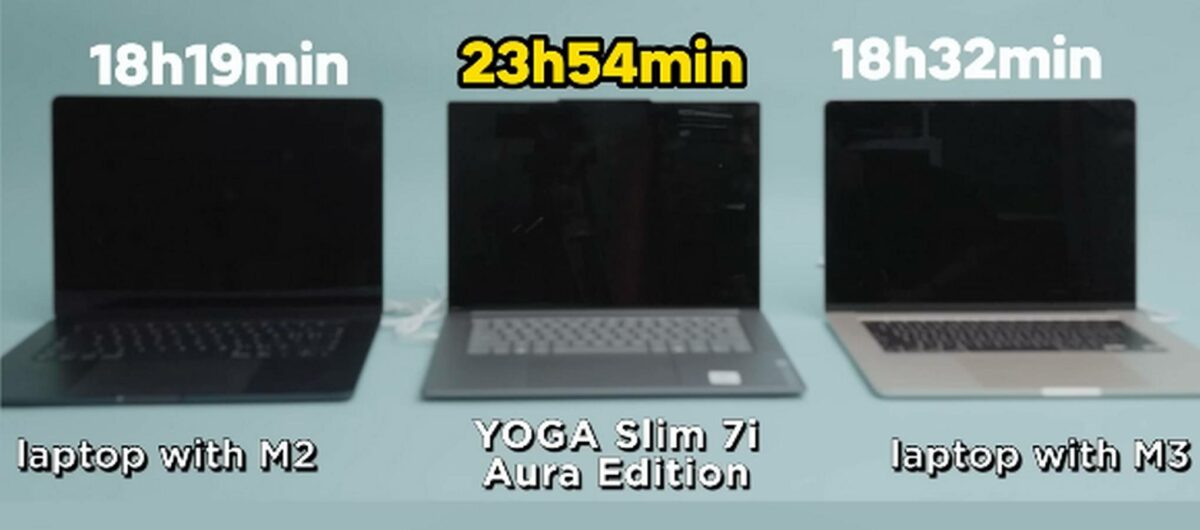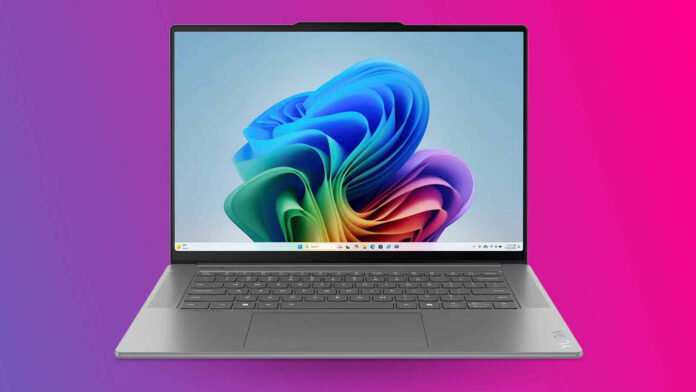A Lenovo Yoga Slim 7i Aura Edition laptop left Apple’s M series MacBooks in the dust during a battery longevity test. Powered by Intel’s latest Core Ultra 7 258V Lunar Lake processor, the laptop handled close to a full-day operation.
According to a showcase by Lenovo, its Yoga Slim 7i Aura Edition laptop was able to stream a local video for 23 hours and 54 minutes while on battery power. This put it several hours ahead of Apple’s M2 and M3 MacBooks, which are renowned for their efficiency. For instance, the M3-based MacBook gave up after 18 hours and 32 minutes, 5h22min earlier than the Lenovo. That’s enough time to finish watching Dr Who’s dinky last season.
As you can guess, such durability comes at the expense of cut corners. For instance, Lenovo turned keyboard lighting off, capped the screen brightness at 150nits, and cut networking off so WiFi didn’t waste energy scanning for SSIDs. While I can live with a dimmer display, especially at night, chances are most of the movies and series you watch are through streaming services such as Netflix and Prime Video, making an Internet connection essential. It’s a shame we can’t see the results with WiFi on.

With that in mind, it doesn’t take from Intel’s Lunar Lake efficiency, topping the current power king. It’s even more impressive using an x86 CPU instead of the fancy new ARM-based Snapdragon chips. Moreover, it seems that Windows, which generally gets bashed for bad battery management, can correctly optimise the machine power giving a good base to work with.
Now, under normal usage, Yoga Slim is unlikely to stay on for this long. As long as it maintains the 30% extra efficiency compared to its competitors, it’s a win, but there’s every chance Apple’s M chips could catch up under normal use. Performance is another important aspect that could make or break such products, but that’s outside the scope of this test. What is sure is that x86 CPUs are not giving up on efficiency yet, opening the way for even smaller handheld devices.
